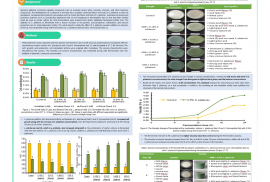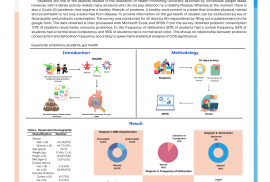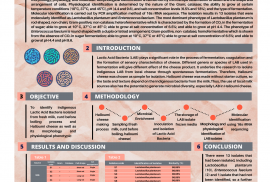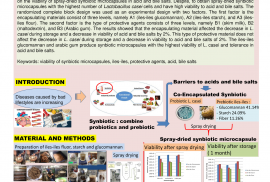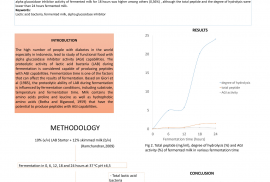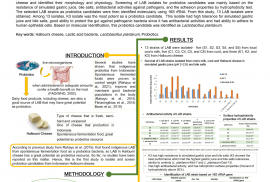By: Arum Darmastuti, Pratama N. Hasan, Rachma Wikandari, Tyas Utami, Endang S. Rahayu, Dian Anggraini Suroto
ABSTRACT
Adhesion capacity has been considered as one of the selection criteria for probiotic strains. The aim of the study was to determine the adhesion properties of two candidate probiotics, Lactobacillus plantarum Dad-13 and Lactobacillus plantarum Mut-7. The evaluation included hydrophobicity of the cell surface, autoaggregation, and adhesion of L. plantarum Dad-13 and L. plantarum Mut-7 to the intestinal mucosa accompanied by genomic analysis. All strains tested showed high surface hydrophobicity and medium autoaggregation ability. Exposure of both isolates to the surface of the rat intestine increased the total number of lactic acid bacteria, indicated the attachment of lactic acid bacteria on the surface of the rat intestine and reduced the indigenous E. coli. Both strains have genes related to adhesion properties that could play an important role in increasing the adherence of probiotics to the intestinal mucosa. Based on this findings, L. plantarum Dad-13 and L. plantarum Mut-7 have the ability to attach to the intestinal mucosa in the rat intestine model system.


